2026 Author: Priscilla Miln | miln@babymagazinclub.com. Last modified: 2025-01-22 17:55:15
Experimental studies several decades ago proved the beneficial effect of music on the versatile harmonious development of children. Since then, music classes have become an integral type of educational work in preschool institutions. It is known that the game is the main activity of preschool children. That is why children learn the aesthetics of sounds in a playful way. In pedagogy, such activities began to be called musical games. In addition, educators are using this type of work more and more widely, using games as an element in mathematics classes, speech development, or during the organization of children's leisure time.
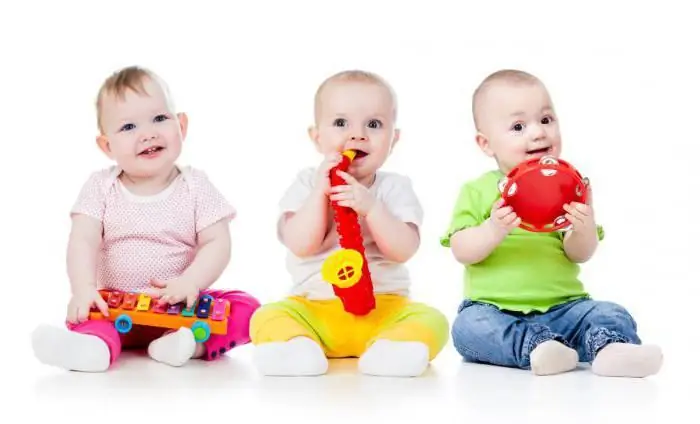
In our article we will talk about what children's musical games are held in kindergarten.
What are musical games for in kindergarten?
From birth, a baby, listening to his mother's lullaby, learns to hear and perceive music, to feel the character of sounds. Rattles, musical toys cause cognitive interest. Such games help the child in an accessible,in an entertaining way to get acquainted with the outside world.
Psychologists say that music helps the baby develop harmoniously. It was found that thanks to educational activities in which teachers use children's musical games, kindergarten students better learn and remember the material. In addition, such activities contribute to:
- memory development;
- attention;
- logical thinking;
- perseverance;
- formation of speech, correct pronunciation of sounds;
- development of coordination of movements;
- increase motivation for learning;
- formation of aesthetic taste.
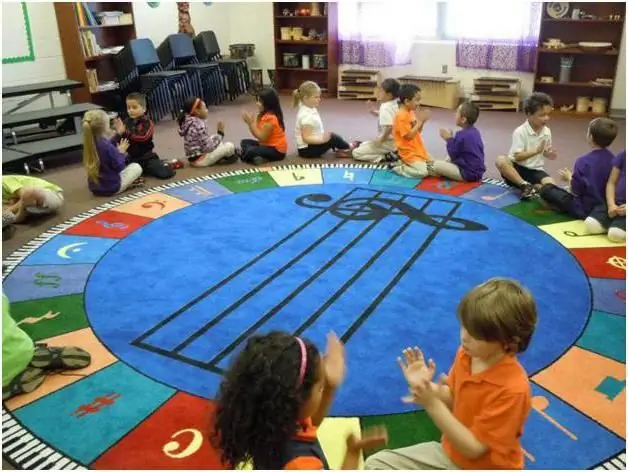
Proper breathing during musical games is an effective prevention of respiratory diseases, and also improves metabolic processes, and the exercises themselves allow you to overcome various psychological individual problems (for example, they help the child adapt in the children's team).
Main types of games
The following types of musical games in kindergarten are noted:
- Moveable.
- Didactic.
- Round dance.
Passive perception or active participation?
In addition, musical games can be divided, depending on the role of the pupil in the process of activity, into several types:
- Games aimed at the perception of music. As an example, we can cite the following: “Guess the instrument by the sound”, “Determine the nature of the music”, “Guess the song from the cartoon”. Alsochildren are interested in such entertainments as "Leaves rustle", "Sunny and rainy day", "Sounds of nature" - these are autumn musical games in kindergarten. They can be adapted to any other time of the year.
- Independent performance. In this case, there is no need to professionally reproduce musical works - not many kindergarten students have such a talent. But knocking on wooden spoons, setting the rhythm with a drum or even simple clapping is quite within the power of even the smallest children.
- Creative children's musical games in kindergarten. Any activity in which children are encouraged to show their talents and abilities is creative. For example, you can invite pupils, after listening to a melody, to “reproduce” it with paints on paper.
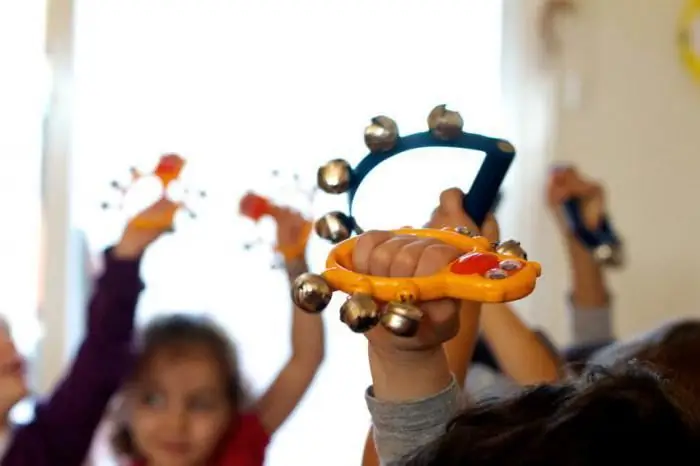
Music and rhythm games in kindergarten involve various dance elements, imitation.
Moving music games in kindergarten
Outdoor games will never leave preschool children indifferent. And if such activities are also carried out under musical accompaniment, then the effectiveness of classes will increase several times. That is why a wide variety of musical outdoor games are held at various entertainment events for children. In kindergarten, this is a win-win form of work - a memorable, bright, interesting and fun pastime!
Outdoor games can be played not only in music classes. They are widely used asphysical minutes, entertainment moments, competitions. It is important to choose the right theme of the game, which will harmoniously resonate with the lesson, and it is also necessary to clearly formulate the tasks and describe the desired results of the activity.
Active music games
There are an infinite number of mobile music games. In addition, the educators themselves can come up with a new kind of entertainment. As an example, we suggest that you familiarize yourself with interesting outdoor music games that can be played in kindergarten:
- Performing movements according to the text of the song (staging). As a material, you can use the songs of Zheleznova E. S. or folk jokes, nursery rhymes.
- Activity aimed at perceiving the character of music. This category includes, for example, such games as "Show fun-sad", "Depict a melody with facial expressions", "Rain - sunshine".
- Competitions. The most famous game of this kind is "Take a chair." You can also offer to play “The Sea Worries” to the music (at the moment when the melody stops playing, the participants “freeze”), “Repeat after me” (aimed at developing coordination of movements and attention).
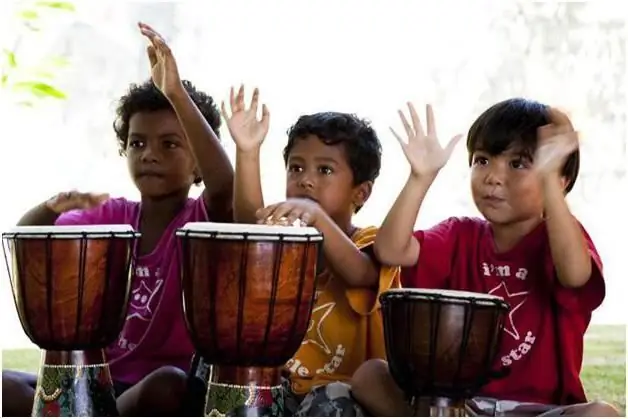
Such a division of musical activities is extremely conditional. Depending on the topic of the lesson, the age and individual characteristics of the pupils, teachers are creative, inventing or modifying various tasks.
Didactic musical games in kindergarten
Musical and didacticgames in kindergarten are used in any classroom. So, for example, using images of musical instruments, you can conduct a didactic game, studying the score or developing speech.
When preparing for the lesson, it is important for the teacher to determine the goal and objectives of the game, to prepare the necessary props.
Materials for didactic music games
Musical and didactic games in kindergarten are difficult to effectively conduct without special educational material. The very name of the activity suggests the presence of a didactic file cabinet. You can purchase ready-made products or create games yourself. It is desirable to involve children in the manufacture of the material. Such activities will not only bring practical results, but will also become an entertaining activity for pupils.
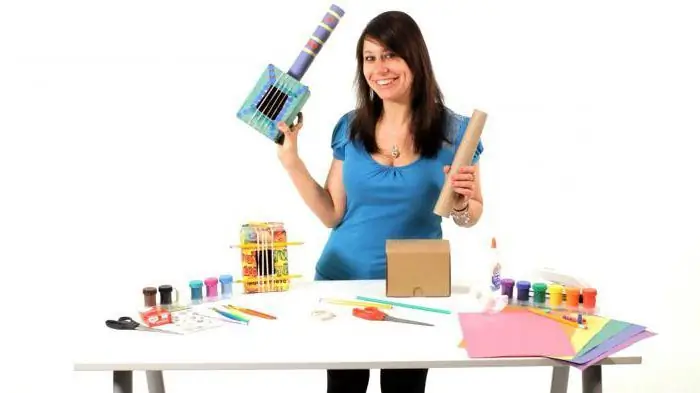
Materials for didactic musical games are classified as follows:
- audio recordings;
- musical instruments;
- musical toys;
- printed products (cards, images, illustrations).
Examples of musical didactic games in kindergarten
We suggest that you familiarize yourself with some didactic musical games that are held in kindergarten:
- "Guess the instrument". Children are invited to hear the sound (both an audio recording and a real instrument can be used) and show a card with the image of the musical instrument that plays this sound.
- "What's extra?". Participants are given cards withdepiction of musical instruments. Children need to choose an extra item. For example, the card shows 3 wind instruments and 1 percussion (accordingly, it will be superfluous).
- "The bells are ringing." With the help of cards, which depict a large (don) and a small (di-li) bell, the kids are invited to draw a picture of the melody they listened to. To do this, children need to arrange the cards in the required order.
- "Cheerful xylophone". The teacher lays out in a certain order the cards of the color that corresponds to the required section of the xylophone. Children need to play the melody "encrypted" on the cards on this musical instrument.
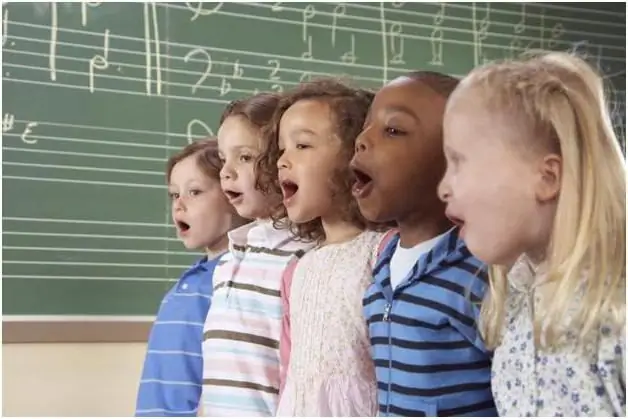
Such children's music games in kindergarten will be a real treat for kids. Bright didactic material will help to effectively present and consolidate educational material for children.
Round Music Games
Round dance musical games are different in that they are played with a group of children who walk in a circle, holding hands and humming the words. Round dance is an old tradition of our people, known several centuries ago and having religious roots. It is known that in this way our ancestors asked for fertility, met spring, “caused” rain. And today, a round dance around the Christmas tree or congratulations on the birthday “loaf” is nothing more than a round dance musical educational games.
In kindergarten, you can organize a round dance, singing stoneflies, carols, folk jokes.
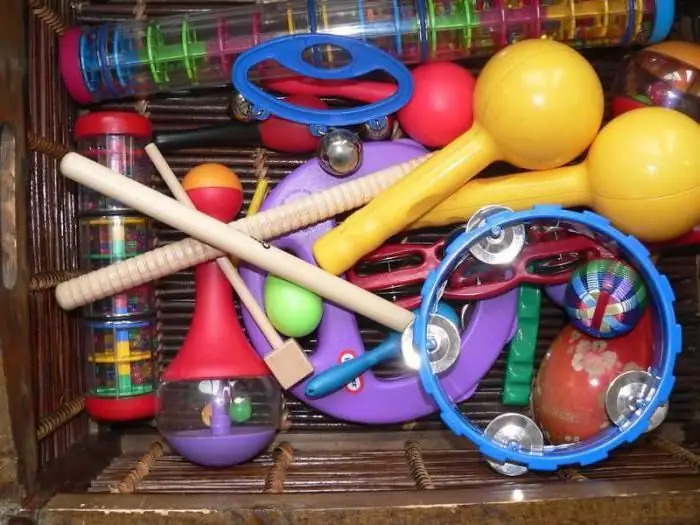
It is noticed that children who get acquainted with the aesthetic beauty of music from preschool age, better learn the school curriculum, have high intellectual and creative abilities. In addition, it has been proven by experts that children's musical games in kindergarten contribute to the cognitive activity of children, the formation of their aesthetic taste, and harmonious all-round development.
Recommended:
Birthmarks in children: types of spots, their color, shape and size, causes and advice from pediatricians on child skin care

Moles and birthmarks in children from birth - how many beliefs and signs are associated with them! But it's just a cluster of cells containing an excessive amount of pigment. And medicine combines such clusters into a single term - nevi. It is about them and birthmarks in children that will be discussed in this article. And you will also learn that you owe every mole on your body to your mother. And about why a birthmark appears in a child and then manifests itself, how to care for it and whether it is worth removing
Musical toys for children and their types
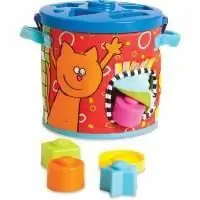
Musical toys are very important for the development of the child in the first months of life. They have a beneficial effect on the process of mastering motor skills and the formation of a sense of rhythm. Let's talk about the main varieties of toys of this kind
Educational toys for children 4-5 years old: constructors, sets for story games, musical toys
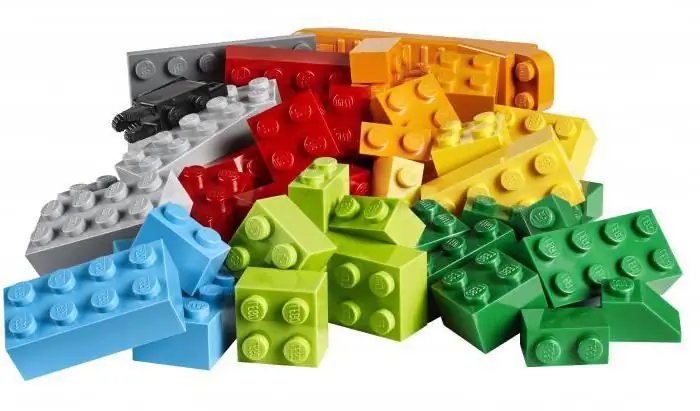
Commodity abundance, including in children's goods stores, sometimes baffles. Everything around is so bright, tempting! But you can’t buy the whole store, for a child you want to choose something really necessary: interesting and useful. All these criteria are met by educational toys for children 4-5 years old
Types of theaters in kindergarten and attributes for theatrical games
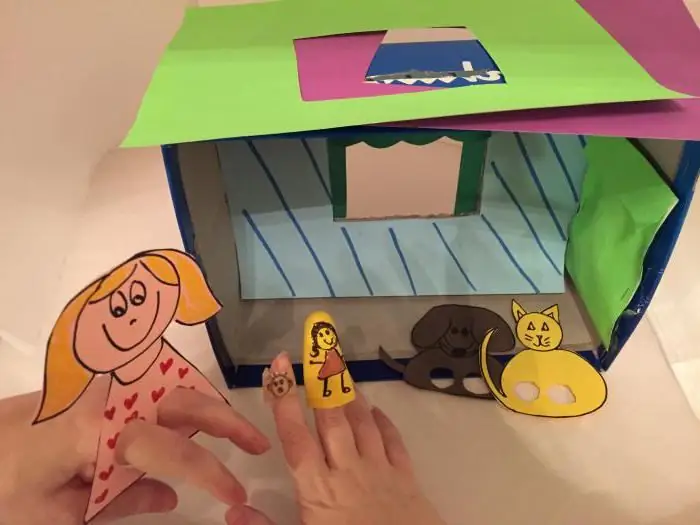
One of the effective types of play activity in kindergarten is theater. In such activities, preschoolers show creative activity, realize their potential, develop abilities. About what types of theaters are in kindergarten and how to organize them correctly, we will consider in this material. In addition, we will share interesting ideas for making attributes and equipment for such work
Children's musical instrument - musical toys for babies
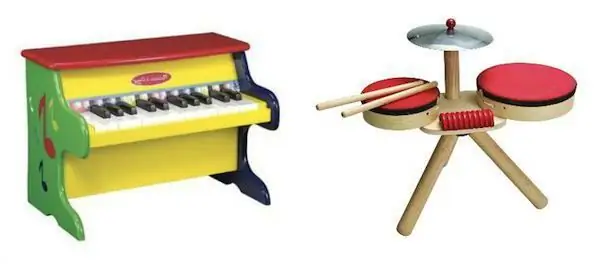
Children's musical instruments are toys that are not only used for entertainment. They are excellent tools for development. Such toys are usually made in bright colors

